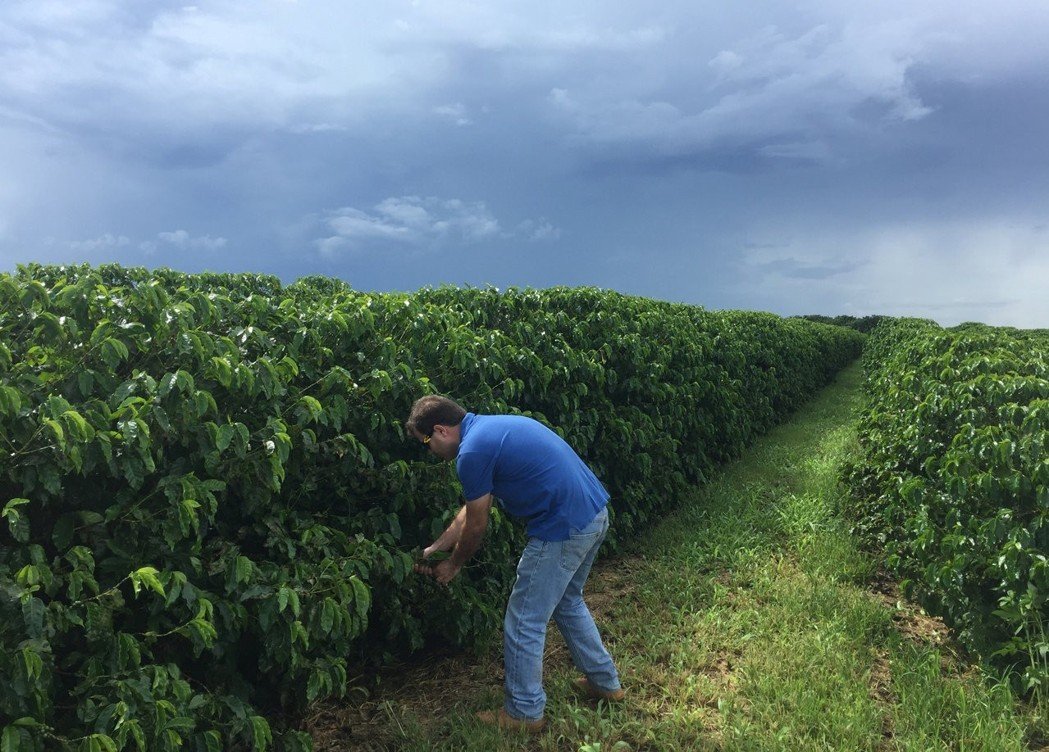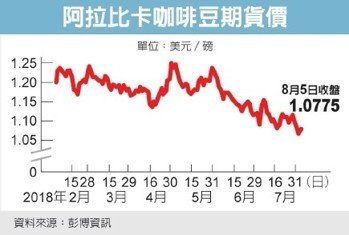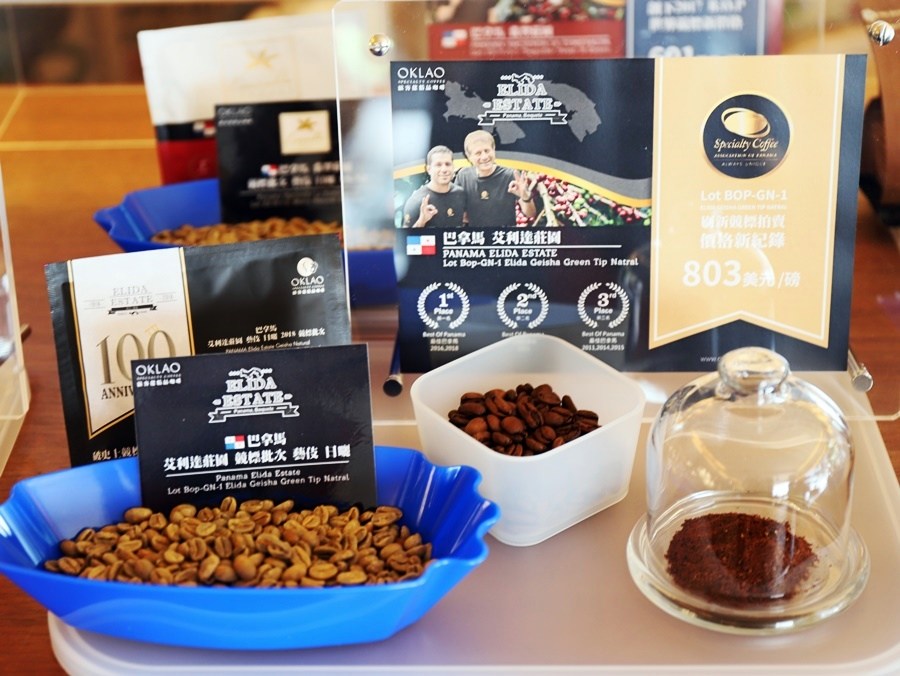The price of Arabica coffee beans may rise by 20% at the end of 2018 due to the severe drought in Brazil, a big coffee bean producer.

Professional coffee knowledge exchange more coffee bean information please follow the coffee workshop (Wechat official account cafe_style)
Affected by dry weather in Brazil, a big producer of Arabica coffee beans, and fluctuations in the exchange rate of Brazil's Lille, Arabica coffee futures are expected to jump nearly 21% by the end of the year.
Traders and analysts polled by Reuters expect ICE Arabica coffee futures to rise to $1.30 a pound by the end of the year, up 20.6% from Friday's closing price of $1.0775, but the latest forecast is slightly lower than the $1.3443 a pound polled by Reuters in February.
The survey also shows that the market estimates that Brazil will produce 54.5 million bags of coffee beans (each weighing 60 kilograms) in the 2019 / 2020 season, of which 38 million bags are Arabica beans and 17 million bags are Robusta beans.

The total estimated production of coffee beans in Brazil in the 2019 / 2020 season is expected to be less than the record 60 million bags in the 2018 / 2019 season.
Huckett, president of Hackett Financial Advisors in Florida, said that meteorological research results show that the current dry weather in Brazil will significantly affect the key flowering period from September to November.
Hakitt also said that as the pace of Brazil's presidential election in October approaches, the lira could soar, pushing up the futures price of Arabica coffee beans traded in the United States. Other experts also expect increased volatility in Lille to support Arabica coffee bean futures prices.
Mera, a senior commodities analyst at Rabobank, also said that a trade war may also affect the flow of coffee beans, while another bullish factor for coffee beans is the likely occurrence of the "holy baby phenomenon" this year. Indonesia, the world's fourth largest coffee bean producer, has drier weather than ever before.

Vietnam, the world's second-largest producer of coffee beans, is expected to produce 28.5 million bags in the 2018 / 2019 season, down from a record high of 29.5 million a year ago.
According to data from the World Coffee Research Institute (WCR), it is estimated that global coffee demand will grow by 2% a year by 2050, and production needs to double to meet demand, but due to climate change, the number of areas suitable for growing Arabica coffee beans may be reduced by half by 2050, Bloomberg reported.
END
Important Notice :
前街咖啡 FrontStreet Coffee has moved to new addredd:
FrontStreet Coffee Address: 315,Donghua East Road,GuangZhou
Tel:020 38364473
- Prev

The most expensive summer champion bean in history! 2018BOP Best Panamanian Coffee bid $803 / lb
Professional coffee knowledge exchange more coffee bean information Please follow the coffee workshop (Wechat official account cafe_style) at the international coffee bean auction, Taiwan businessmen bid the rosy summer champion beans at a sky-high price of US $803 per pound, even if the cost is shared by consumers, a cup costs 2000 yuan, which is also a sky-high price. The annual output value of Taiwan's black gold business opportunities is as high as 70 billion, and more and more people like to drink coffee.
- Next

Luckin Coffee luckin coffee unveiled 2018 ChinaJoy with coffee and cute girls.
Professional coffee knowledge exchange more coffee bean information please follow Coffee Workshop (Wechat official account cafe_style) 2018 16th China International Digital Interactive Entertainment Exhibition (hereinafter referred to as ChinaJoy) kicked off today in Shanghai New International Expo Center. The new retail coffee representative luckin coffee also came across the border, becoming the first coffee brand to launch Chian Joy. Lu
Related
- Can lightly roasted coffee beans be used to extract espresso? How finely should you grind high-quality coffee beans to make Italian latte?
- What is the difference between the world's top rose summer coffee and Yejia Shefi? What are the flavor characteristics of Yega Shefi coffee and Panama rose summer?
- The ceremony is full! Starbucks starts to cut the ribbon at a complimentary coffee station?!
- A whole Michelin meal?! Lucky launches the new "Small Butter Apple Crispy Latte"
- Three tips for adjusting espresso on rainy days! Quickly find the right water temperature, powder, and grinding ratio for espresso!
- How much hot water does it take to brew hanging ear coffee? How does it taste best? Can hot water from the water dispenser be used to make ear drip coffee?
- What grade does Jamaica Blue Mountain No. 1 coffee belong to and how to drink it better? What is the highest grade of Blue Mountain coffee for coffee aristocrats?
- What are the flavor characteristics of the world-famous coffee Blue Mountain No. 1 Golden Mantelin? What are the characteristics of deep-roasted bitter coffee?
- Can I make coffee a second time in an Italian hand-brewed mocha pot? Why can't coffee be brewed several times like tea leaves?
- Hand-brewed coffee flows with a knife and a tornado. How to brew it? What is the proportion of grinding water and water temperature divided into?

